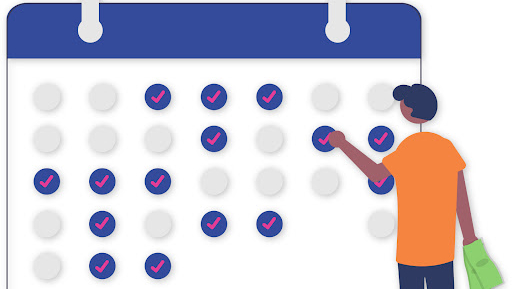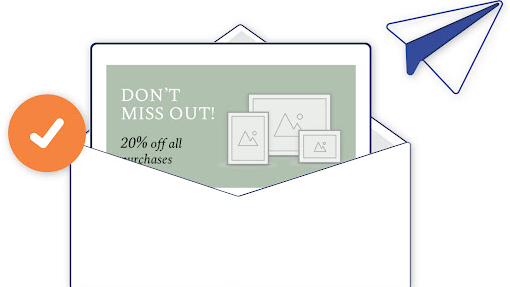How technology advancements are disrupting the business of photography
Technology in the photography business is the gift that keeps on giving

Technology innovations in the camera began disrupting the photography industry 20 years ago with the advent of digital sensors replacing film.
Advanced post-production software brought even more innovation over the past decade.
Today, sophisticated workflow automation technology powered by artificial intelligence and machine learning is disrupting the way photographers run their business, enabling greater productivity behind the scenes.
- Here's a list of the best website builders for photographers on the market
The photography business in a time of instant expectations
While many technology advancements in photography have been about camera, editing and printing improvements, there is a new emphasis on the business side of the industry. In the same way that digital images delivered instantaneous results bypassing film processing, new business solutions for discovery, scheduling and payment are now available right in the palm of their hand to help photographers succeed.
Photography pros and clients alike are smartphone-equipped, mobile-optimized, and social-media enabled. The photography business ecosystem must be able to deliver sleek, easy-to-use business experiences to stay ahead of clients’ rapidly evolving expectations for instant gratification.
As a business partner (and SaaS developer) for photographers, it is imperative to help customers deal with the challenges of today and plan for the needs of tomorrow. Photographers need and expect a comprehensive technology platform that helps them stay ahead of the curve.
A photography business suite of tools should deliver technology solutions for:
Are you a pro? Subscribe to our newsletter
Sign up to the TechRadar Pro newsletter to get all the top news, opinion, features and guidance your business needs to succeed!
- Elegant portfolio presentation
- Effective discovery methods to attract clients
- Streamlined, automated scheduling and payment
- Easy post-shoot client proofing and image selection
- Hands-off print/product sales and delivery to clients
- Ongoing, automated marketing and sales incentives
Technology to help clients find and hire a photographer
Traditionally, a client seeking professional photography services relied on recommendations by friends or was forced to choose between photographers who had hired a professional website coder/builder and those using rather inflexible “vanilla” site templates.
Now, drag-and-drop website building technology empowers photographers to present their work by creating unlimited online portfolio variations, branded in their own style to set them apart from others – without writing a single line of code.
Using extremely intuitive starter templates, a photographer can design a beautiful portfolio site in minutes by simply dragging and dropping content blocks into place, uploading their images and writing the stories they want prospective customers to read.

A good business technology partner will take it steps further by providing tools to optimize the site content for maximum exposure to search-engines to help their website get discovered, optimize image upload and download speeds, and ensure the security of images from the nefarious threats of the web-based world.
It’s Business 101 – attracting clients, doing the work, collecting revenue. By listening to clients and working to understand their challenges, we realized that while many other industries had moved to an online back-end business environment, photographers were still managing bookings and payments manually. Or at the very least, they were using multiple online tools from multiple companies to make it all happen.
The required back-and-forth calls and emails with clients took time away from completing more photoshoots and selling images.
Photographer portfolio availability
Completely automated scheduling disrupts this experience by evolving from a pen and paper calendar, beyond Excel and Google calendar entries, to an end-to-end suite of tools automating an entire client experience prior to the shoot.
Consider how a resource like a fully automated booking tool takes over the process after a client finds a photographer, not only automating the entire scheduling, invoicing and payment process, but also enabling a photographer to fulfil pre-orders that they might have sold as part of the service at the time of booking.

BookMe is auto-synced with a photographer’s calendar enabling a client to instantly see their availability and get immediate transparent pricing. Once booked, a new private client gallery is auto-generated, ready to accept uploaded images after the shoot for clients to review, comment on, and select.
Print and photo gift orders can be placed by the client right in the user interface, right on the spot. Orders go directly to the lab, get processed and shipped directly to the client.
Automated booking, scheduling and direct payment saves photographers an average of more than 40 hours every month by streamlining the client on-boarding experience. Better yet, it increases bookings and revenue. Photographers are able to reallocate time usually spent on administrative tasks to ones that bring in more revenue.
Technology to support the post-shoot process
Technology advancements beyond the automated booking and payment process expedite the post-shoot experience by not taxing a photographer’s online resources.
Uploading that doesn’t result in downtime
If the image uploading process ties up a photographer’s online bandwidth, it can cripple their ability to do other things during the time they are waiting around for photos to upload.
Zenfolio, for example, engineered a multi-threaded, non-blocking uploader enabling photographers to upload multiple galleries simultaneously as they work on their website or refine the price list for their online shop.

Eliminating the need for a photographer to configure each client gallery individually is another way to save time and get images to clients faster. Zenfolio's gallery preset feature lets a photographer define presets while uploading a new gallery. The preset automatically applies layouts, prices, privacy and access settings, and many other configurations.
Facial recognition technology to easily find a face in a crowd
A good photography business technology partner – and SaaS provider – pays close attention to business trends and emerging genre specializations. Event photography is growing in popularity to join established wedding and sports genres.
A photographer or client can spend giant chunks of time inspecting a gallery full of people to find specific faces and manually tag or share those photos. Why not apply the latest facial recognition technology used in other industries to expedite this process?
A simple and effective facial filter tool enables a photographer to locate faces and organize hundreds of images in a matter of seconds. Originally intended as a photographer-only tool, the Facial Filter can be enabled for client use.
Let’s face it – most brides are probably more interested in looking at photos of themselves and their new spouse than browsing pictures of their uncle “getting low” on the dance floor.
Technology that improves the proofing process
Proofing typically requires quite a bit of back and forth between a photographer and their client, and this is often complicated by the fact that you and your client might not be referring to the same photo.
The best way to automate your workflow is to enable your clients to interact with you directly on the specific image they’re looking at.
A suite of technology tools should enable a client to select an image as a “favorite” and add a comment or editing direction right on the image. Photographers see every comment as they edit the galleries and photos.
The comments even flow through to their favorite editing tool, and edited photos can be replaced without losing the metadata or original comments.
Technology to automate marketing to clients
The pandemic brought the photography industry to its knees for months. Unable to rely on income from upcoming work, photographers had to earn passive income from past shoots.
Automated ecommerce campaigns that reintroduced past images to clients with an incentive to make a purchase helped photographers bring in revenue and survive the challenging period. The pandemic also revealed an interesting fact – clients stuck at home enjoyed reliving photo memories and ordering prints on their devices.
Automated client campaigns
Zenfolio created and launched the only automated Client Campaigns feature in the photography industry.
A photographer can opt into predefined seasonal marketing campaigns designed for Mother’s/Father’s Day, July 4th, and other secular and religious holidays.
Select galleries can be attached to each campaign and the rest just happens on auto-pilot – clients order, the lab processes and ships directly to the clients.

And more revenue opportunities are available from coupon-based campaigns that are implemented on gallery banners and emails to clients.
These cool marketing features leverage both the workflow automation platform and relationships with leading print labs to help photographers sell thousands of products on their websites and client galleries – all without lifting a finger.
Technology to analyze business data
Any smart business platform should provide actionable data, which means it exists to help photographers learn and run their business. Key insights about how photos are getting viewed, favorited and downloaded should be available at the gallery level.
Apps to maximize success
The widget dashboard must be an easy-to-use user interface that offers a quick way to see how many visitors a photographer is driving to their site, to see upcoming bookings and how print and digital sales are working.
The app also guides them on what they should focus on next to become more successful. Like every aspect of a photography business platform, the technology must be built with a razor-sharp focus on usability, simplicity and efficiency.
What's next for photography innovation
By automating key workflows, photographers can spend more time behind the lens, interacting with their customers and working their unique brand of magic on creating photos – and less time doing administrative and marketing work.
Technology advancements will continue to disrupt the photography business in the best of ways on both sides of the camera. Photography customers experience automation, streamlining and convenience from other industries in their everyday lives.
They expect it from their favorite photographer as well. And the photographer’s business technology partner is here to help them meet those expectations, along with a few new tricks.
- We also have a roundup of the best web hosting providers out there
Munib serves on Zenfolio’s executive team as Chief Product Officer, responsible for setting and executing product strategy plans for the company.